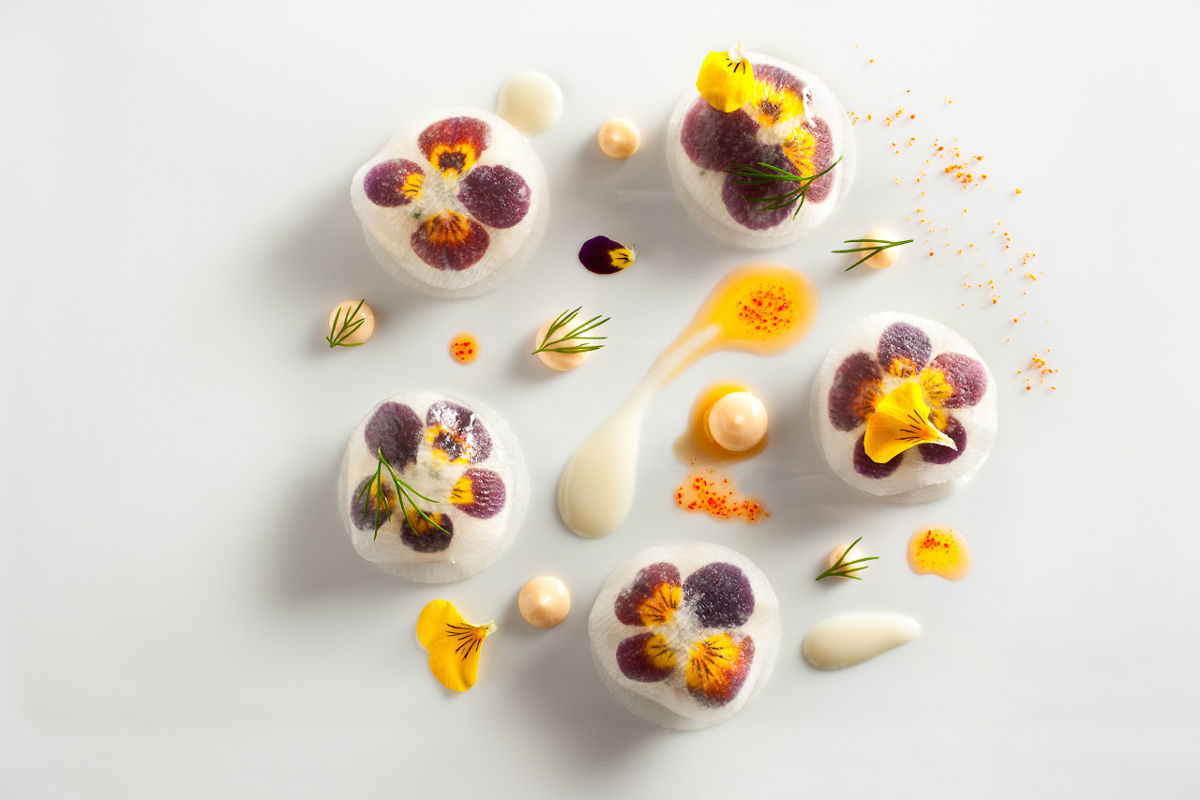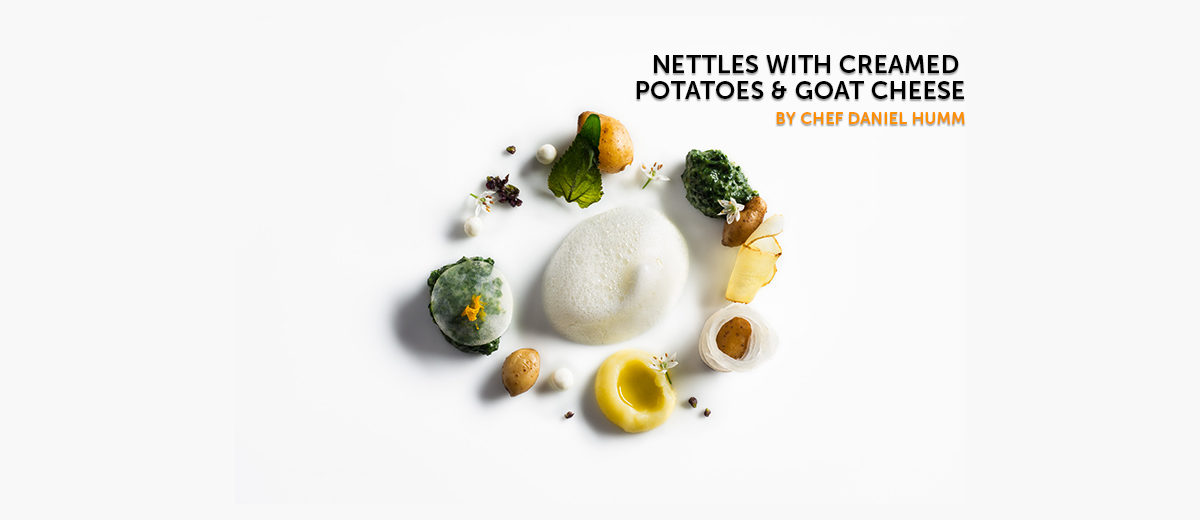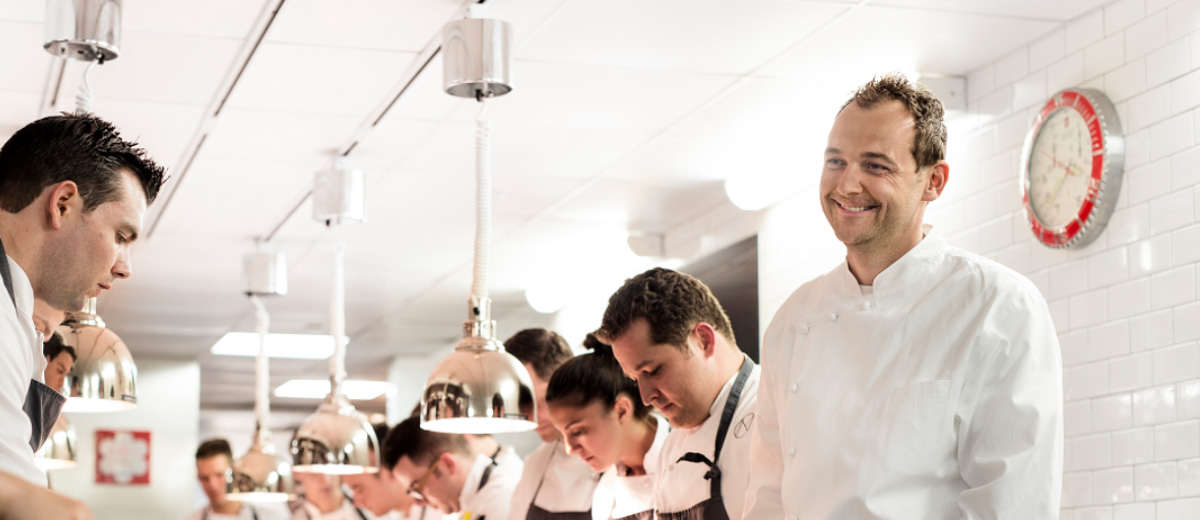Executive Chef/Owner of two of New York’s most beloved and pioneering restaurants: Eleven Madison Park and The NoMad, Swiss native Daniel Humm holds three stars from the Michelin Guide, and the No. 5 slot on the annual list of The World’s 50 Best Restaurants. Alongside acclaimed restaurateur Will Guidara, their teams are known not only for perfectly executed, innovative cooking, but also for creating extraordinary, genre-defying dining experiences.
You received your first Michelin Star aged just 24, with numerous prestigious accolades following throughout your career. What do you think is the influence of all the big awards, James Beard, 50 Best, and Michelin? Which ones are the most important and why? And what about the pressure of keeping them?
All the awards have been very humbling, they give us a sense of validation at that moment, but also encourage us to look forward and to set new goals. Every award holds importance, some may impact our business more, but every one is an honor to receive. If I had to pick one that’s been the most memorable, though, I’d say it was the four star NY Times review from Frank Bruni in 2009 – that was the first major review for us and I think it really gave Will and I the confidence to get to where we are today.
How has your background, Swiss heritage, influenced your food at Eleven Madison Park and NoMad?
Growing up in Switzerland I learned to appreciate the ingredients we cooked with, but I credit that mostly to my mother, more so than to where I grew up. She exposed me to simple food, fresh ingredients, and local farmers at a very young age and that shaped who I am as a chef and what my values are. That definitely has impacted the food at EMP and NoMad, but also I’ll find ways to incorporate dishes and flavors from my childhood into the menu – the milk and honey dessert is a great example of that.

You played around with tasting formats at Eleven Madison Park, replacing the à la carte concept in favor of a more radical prix fixe menu, which encouraged diners to build their dinner around specific ingredients. What did you learn from the process and how is the menu structured now?
Eleven Madison Park will constantly evolve, it’s the nature of the restaurant, and as part of that endless reinvention we’ve altered the menu and experience a number of times. What we’ve learned through each change is that we have the ability to change and that emboldens us to take risks, to challenge the status quo, and I believe be the best restaurant we can be. Right now the menu is a tasting menu, but with less courses and more choice. It reflects how we want to eat, but also encourages more conversation and connection at the table – whether that’s with fellow diners or our dining room team. It’s been really fun to hear the reaction from our guests.
At Eleven Madison you also offer a 7-9 course seasonal tasting menu that focuses on local ingredients. What dishes have you incorporated in the spring menu?
I’m really excited that we’re going to be rolling out our hors d’oeuvres course any day now. Just as you’d be served small bites and hors d’oeuvres at someone’s home before a meal, we’re starting the guest experience the same way. It’s a great way to relax into a meal, create some conversation, and build connections at the table.

How is fine dining changing? What do you see as the biggest trends that are driving the business of dining out?
I think that the entire restaurant industry is going through a lot of change right now and it’s pretty exciting to be a part of. The world is a smaller place than it was ten years ago – restaurants, chefs, and diners can all connect in an instant, no matter where they are located. There is a lot of opportunity to be inspired by what others are doing across the country, or on another continent. That sharing of ideas is really helping with introducing people to new foods, ingredients, and techniques. On the flipside, it’s important to not get distracted by everything else going on and remember what’s directly in front of you – as this is sometimes the most inspirational.
Your third book, The NoMad Cookbook, was released last year. As a chef, how does your personality translate from the restaurant to the page?
In that book I’m really proud that we were able to get the personality of NoMad as a whole onto the pages. You can see it in the photos, with the recipes, the cocktails, and with the narrative stories. It’s hard to get all that information, all that personality, into a book that’s primary focus is recipes, but I think we did a great job and there was a lot of collaboration along the way.

If you could have any chef in the world prepare a meal for you, who would it be?
I’d love to have sushi prepared by Jiro.
What’s the best restaurant dish you ate in 2015?
I have some great food memories from the past year, but honestly the best restaurant meal of the past couple years was at Fäviken. That meal still is so vivid in my memory.
What would you love to do more of in the future?
You know, I’m not sure. I always wish there was more time in the day – time to be at the restaurants, to be with friends and family, and time for myself. Maybe in the future I can find a way to create more time!
Lastly, what do you enjoy doing most outside the kitchen?
My free time ends up being split between physical activity, like running or biking, and visiting museums and art galleries. I’m a big believer in remaining active, it gives balance to my life, and I’ve always been a fan of art and architecture. New York has so many incredible galleries and I’ve found a lot of inspiration in art throughout my career.
Chef Daniel was also kind enough to share a recipe for Nettles With Creamed Potatoes & Goat Cheese with us from his acclaimed third book, The NoMad Cookbook.



